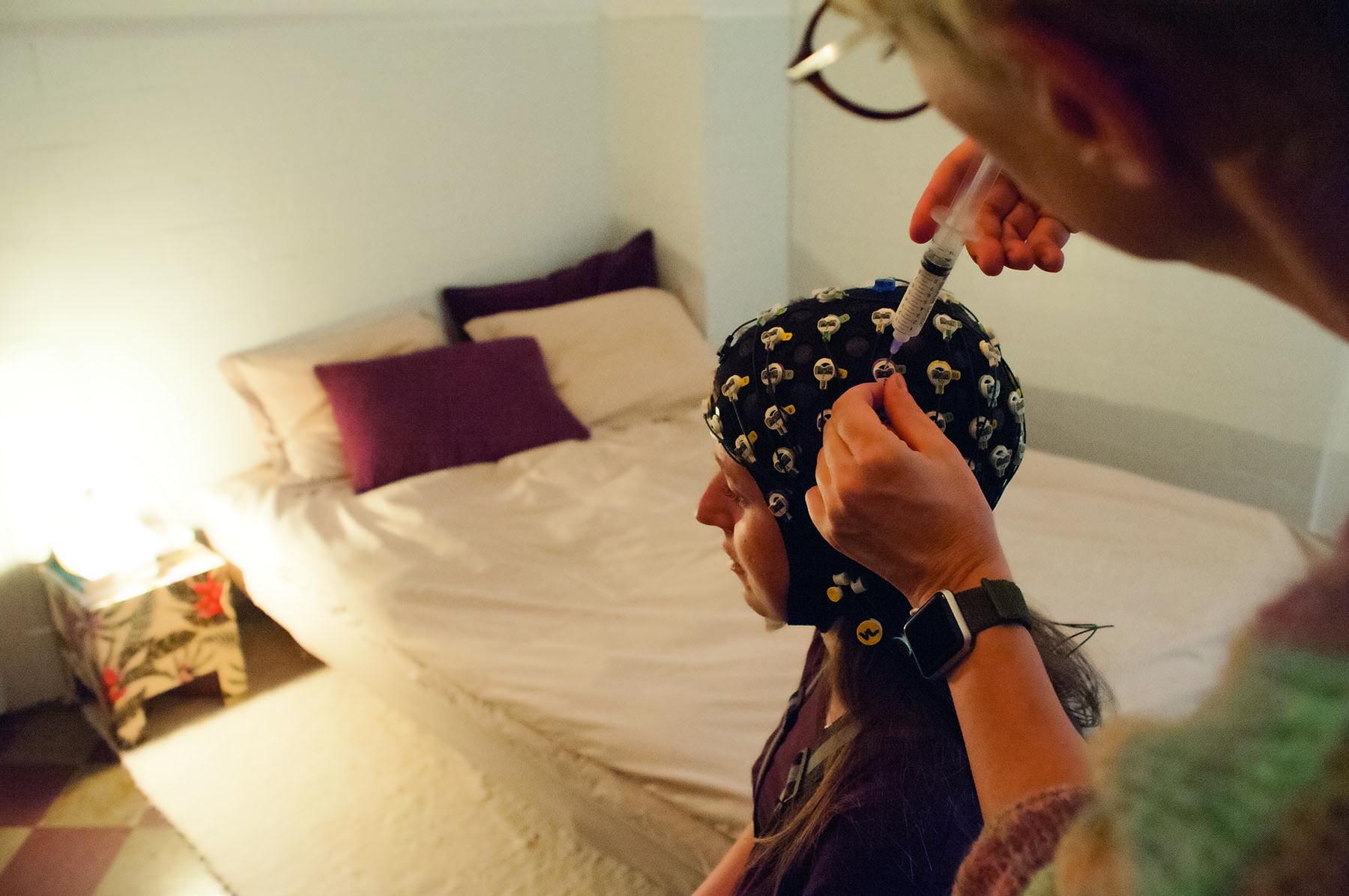Our deep sleep reveals how cooperative we are
Each person has their own sleep profile, which can be identified by the electrical brain activity during sleep. Now, researchers from the University of Bern show that brain waves during periods of deep sleep in a specific area of the brain can be used to determine how cooperative and prosocial a person is in their everyday life.
People donate to charities, volunteer, and participate in cooperative projects. They invest in the well-being of others and the common good without always benefiting themselves. Cooperative and prosocial behavior plays a crucial role in a well-functioning society, but not all individuals exhibit the same level of cooperativeness and altruism. How prosocial someone is can also be discerned during deep sleep, as demonstrated by researchers led by Daria Knoch, Professor of Social Neuroscience at the University of Bern: "The more so-called slow waves a person exhibits in deep sleep in a brain area called right temporo-parietal junction (TPJ), the more prosocial they act. Among other functions, this region of the brain is important to take the perspective of others,” explains Daria Knoch. The results have now been published in The Journal of Neuroscience.
Sleep investigation at participant’s home
Slow waves occur during deep sleep and indicate good sleep quality and regeneration. The topographical distribution of slow waves in the brain is highly individual and is highly stable over time. This means that "each person has their neural sleep profile," says co-first author Lorena Gianotti. To determine whether this profile reveals something about an individual's level of prosociality, the research team studied 54 individuals who had seven to eight hours of nighttime sleep.
"The sleep data were collected using a portable polysomnographic system with 66 EEG electrodes on the scalp of the participants' heads, allowing them to experience natural sleep at home," explains co-first author Mirjam Studler about the procedure.
Prosocial in the 'Public-Good Game'
To determine how cooperative someone behaves, a 'Public-Good Game' was conducted, which had real consequences for the participants as they took home more or less money. In each experimental session, three participants were given 20 points (1 point = USD 0.5) as their "endowment." They anonymously decided whether to keep their points or contribute some or all of them to the public good. Importantly, the experimenters doubled each point that went into the common pot. The final sum in the pot was then distributed equally among all participants. This means that even a person who did not contribute, in other words, did not cooperate, still received a share for their 'free riding.'
More deep sleep in a specific brain area relates to prosociality
Those who exhibited higher slow-wave activity in a specific brain region, namely, the right temporoparietal junction (TPJ), were more generous in the 'Public-Good Game' than individuals with lower slow-wave activity. Interestingly, it was not the duration of sleep but rather the deep sleep in the 'right' brain region, namely, the TPJ, that had an impact on cooperativeness. Due to the relative stability of sleep profiles, the results suggest that sleep quality in the TPJ could be an indicator of the ability for perspective-taking, which may manifest in how cooperative and prosocial a person behaves. “However, the reverse conclusion that someone who has little deep sleep in that brain area is less cooperative cannot be drawn from these initial results," explains Daria Knoch.
The researchers hope a better understanding of the neurobiological mechanisms underlying prosocial tendencies will inspire future approaches to improving perspective-taking and prosocial behavior. “Interestingly, sleep researchers are now developing techniques to modulate slow waves specifically,” says Daria Knoch.
Publication detailsStudler M, Gianotti LRR, Lobmaier, J, Maric A, Knoch D.: Human prosocial preferences are related to slow-wave activity in sleep. The Journal of Neuroscience, 11. März 2024. doi:10.1523/JNEUROSCI.0885-23.2024 |
The Social Neuro LabThe Social Neuro Lab at the Department of Social Neuroscience and Social Psychology at the Institute of Psychology of the University of Bern focuses on the neurobiological basis of human behavior and experience in the social context. Its key areas of focus are: social neuroscience, neuroeconomics, cooperation, prosocial behavior and impulse control. |
2024/03/11




